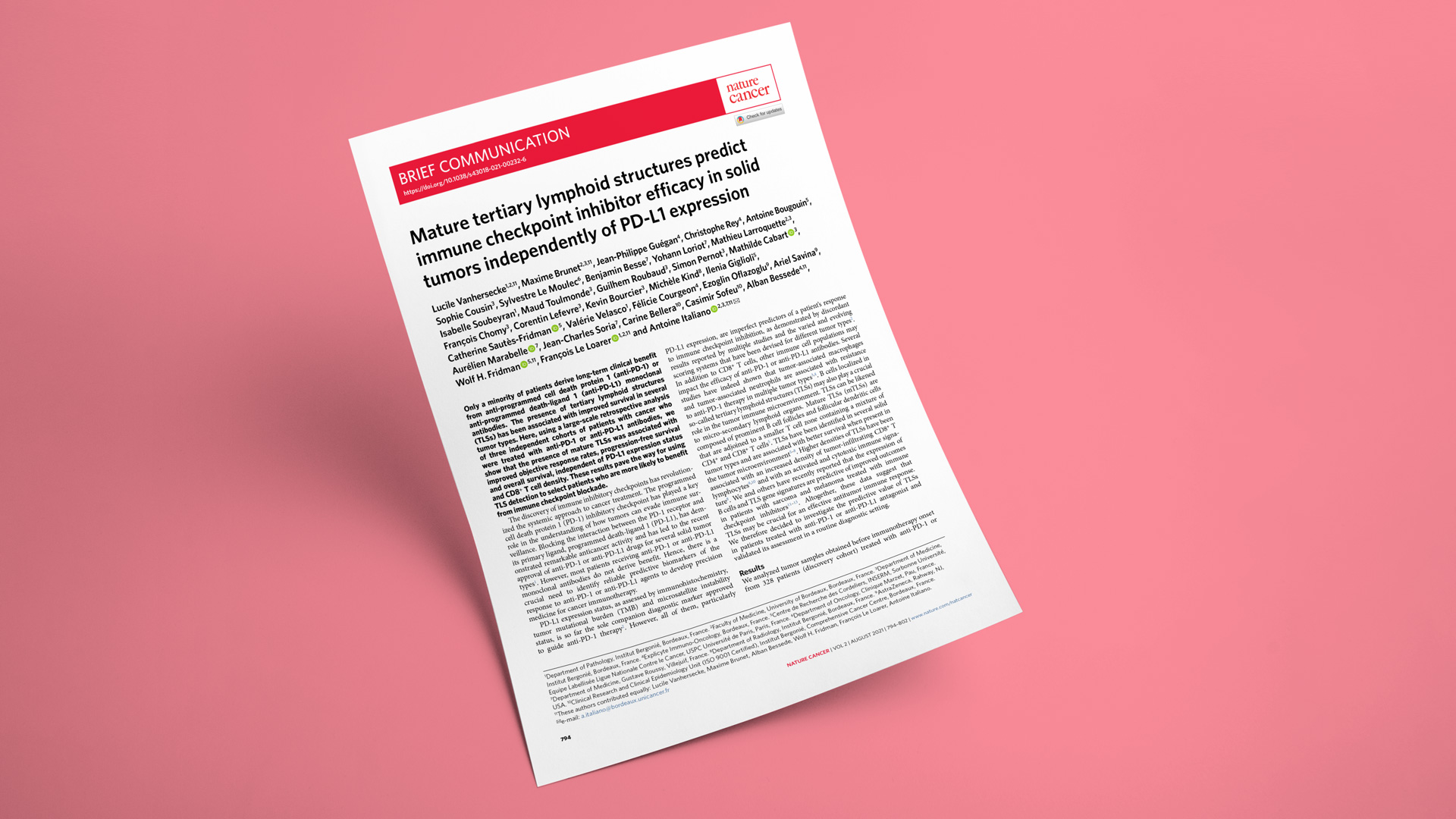Nature Cancer, August 2021.
Lucile Vanhersecke, Maxime Brunet, Jean-Philippe Guégan, Christophe Rey, Antoine Bougouin, Sophie Cousin, Sylvestre Le Moulec, Benjamin Besse, Yohann Loriot, Mathieu Larroquette, Isabelle Soubeyran, Maud Toulmonde, Guilhem Roubaud, Simon Pernot, Mathilde Cabart, François Chomy, Corentin Lefevre, Kevin Bourcier, Michèle Kind, Ilenia Giglioli, Catherine Sautès-Fridman, Valérie Velasco, Félicie Courgeon, Ezoglin Oflazoglu, Ariel Savina, Aurélien Marabelle, Jean-Charles Soria, Carine Bellera, Casimir Sofeu, Alban Bessede, Wolf H. Fridman, François Le Loarer & Antoine Italiano.
Only a minority of patients derive long-term clinical benefit from anti-programmed cell death protein 1 (anti-PD-1) or anti-programmed death-ligand 1 (anti-PD-L1) monoclonal antibodies. The presence of tertiary lymphoid structures (TLSs) has been associated with improved survival in several tumor types. Here, using a large-scale retrospective analysis of three independent cohorts of patients with cancer who were treated with anti-PD-1 or anti-PD-L1 antibodies, we show that the presence of mature TLSs was associated with improved objective response rates, progression-free survival and overall survival, independent of PD-L1 expression status and CD8+ T cell density. These results pave the way for using TLS detection to select patients who are more likely to benefit from immune checkpoint blockade.

